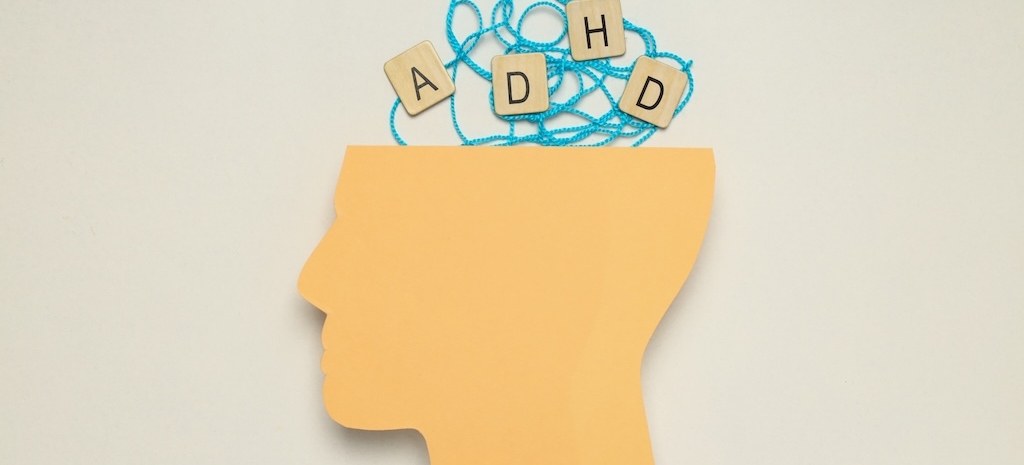Many adults find themselves struggling with focus, organization, and impulsivity later in life, leading them to wonder, “Can you develop ADHD as an adult?” This common question has nuanced answers that can significantly impact treatment approaches and life management strategies. In this comprehensive guide, we’ll explore what science tells us about adult-onset ADHD, how it differs from childhood ADHD, and why professional testing is crucial for accurate diagnosis.
Understanding ADHD Across the Lifespan
Attention-Deficit/Hyperactivity Disorder (ADHD) is traditionally understood as a neurodevelopmental condition that begins in childhood. The Diagnostic and Statistical Manual of Mental Disorders (DSM-5) specifies that symptoms must be present before age 12 for a formal diagnosis. However, recent research and clinical experience have revealed a more complex picture of how ADHD manifests throughout life.

1. The Traditional View: ADHD Begins in Childhood
According to the conventional understanding, ADHD doesn’t suddenly appear in adulthood. Instead, what often happens is:
- Missed childhood diagnosis: Many adults with ADHD had symptoms during childhood that went unrecognized or were misattributed to other causes like behavioral problems, lack of motivation, or personality traits.
- Compensatory mechanisms: Some individuals develop coping strategies that mask their symptoms during childhood and adolescence, only to have these strategies become insufficient in adulthood when responsibilities increase.
- Different presentation in adults: ADHD symptoms often change with age, making adult ADHD look different from childhood manifestations.
2. Emerging Research: Late-Onset ADHD
Recent studies have challenged the traditional view, suggesting that some individuals may indeed develop ADHD symptoms for the first time in adulthood. A landmark study published in JAMA Psychiatry in 2016 found that nearly 90% of adults with ADHD did not have the condition in childhood, suggesting a distinct form of adult-onset ADHD.
However, this research is still evolving, and most experts maintain that genuine adult-onset ADHD is rare and requires careful differential diagnosis to rule out other conditions that may mimic ADHD symptoms.
When ADHD burnout sets in, even simple daily tasks can feel emotionally and cognitively overwhelming.
Common Scenarios That Mimic “Developing ADHD” as an Adult
When adults suddenly notice significant difficulties with attention, organization, and impulse control, they may believe they’ve developed ADHD. However, neuropsychological research indicates that these apparent new-onset symptoms often have alternative explanations. Understanding these scenarios is helpful for proper diagnosis and treatment.
Here are the most common situations that can create the impression of developing ADHD in adulthood.
Related read: What is high-functioning ADHD in women?

1. Unmasking of Existing ADHD
Often, what appears to be new-onset ADHD is the unmasking of existing ADHD when:
- Environmental supports disappear: The structured environment provided by parents, teachers, or other support systems is removed.
- Demands increase: Adult responsibilities at work, in relationships, or as parents exceed the capacity of previously effective coping mechanisms.
- Executive function requirements intensify: Higher education or career advancement requires more sophisticated planning, organization, and time management skills.
2. Other Conditions That Mimic ADHD Symptoms
Many conditions can produce symptoms similar to ADHD:
- Anxiety disorders: Restlessness, difficulty concentrating, and mental “noise” can resemble ADHD.
- Depression: Trouble focusing, mental fatigue, and reduced cognitive processing speed may be misinterpreted as attention issues.
- Sleep disorders: Chronic sleep deprivation causes attention problems, memory issues, and irritability.
- Thyroid disorders: Both hyperthyroidism and hypothyroidism can affect attention, energy levels, and emotional regulation.
- Stress and burnout: Prolonged stress can impair executive function and reduce attentional resources.
- Substance use: Both active substance use and withdrawal can create ADHD-like symptoms.
- Traumatic brain injury: Even mild TBI can cause attention deficits and impulse control problems.
3. Life Transitions and Increased Demands
Significant life changes or stressful events can strain cognitive resources and reveal previously manageable attention issues:
- New job or promotion: Increased responsibility and complexity can overwhelm executive function.
- Parenthood: Sleep deprivation, constant multitasking, and emotional demands can tax attention resources.
- Relationship changes: Adjusting to living with a partner may highlight organizational or attentional differences.
- Health changes: Chronic illness, pain, or medication side effects can impact cognitive function.
Signs That May Indicate Adult ADHD

Whether newly developed or long-present but undiagnosed, these symptoms may suggest ADHD in adults:
1. Attention and Concentration Issues
- Difficulty maintaining focus during conversations, meetings, or while reading
- Frequently losing track of tasks or conversations
- Struggling to complete projects
- Missing important details or making careless mistakes
- Becoming easily distracted by unrelated thoughts or external stimuli
2. Executive Function Challenges
- Poor time management and chronically running late
- Difficulty organizing tasks and activities
- Inconsistent work performance
- Trouble initiating tasks, especially complex ones
- Problems with working memory (holding information in mind while using it)
3. Hyperactivity and Impulsivity
- Feeling restless or fidgety
- Talking excessively or interrupting others
- Making hasty decisions without consideringthe consequences
- Difficulty waiting your turn
- Acting before thinking
4. Emotional Regulation Difficulties
- Mood swings and emotional reactivity
- Low frustration tolerance
- Difficulty managing stress
- Sensitivity to rejection or criticism
- Persistent low self-esteem related to performance issues
The Importance of Professional Assessment
Self-diagnosis of ADHD is problematic because:
- Symptom overlap: Many conditions share symptoms with ADHD, making differential diagnosis essential.
- Objective measurement: Standardized testing measures attention, impulsivity, and executive function.
- Life history analysis: Professional evaluation includes a detailed history to identify symptom patterns over time.
- Rule out other causes: Testing can identify or rule out conditions that may better explain symptoms.
Comprehensive ADHD Testing at KMN Psych

At KMN Psych, we offer comprehensive neuropsychological testing for ADHD across all age groups. Our approach to adult ADHD testing include the following:
1. Thorough Clinical Interview
We conduct detailed interviews to understand symptom history, functional impact, and developmental patterns, helping distinguish between true adult-onset ADHD and other symptom explanations.
2. Standardized Assessment Tools
Our testing utilizes validated measures such as the Wechsler Adult Intelligence Scale (WAIS-IV) and other specialized instruments that assess various aspects of attention, executive function, and related cognitive processes.
3. Comprehensive Analysis
Rather than focusing solely on attention, our evaluations examine the full spectrum of cognitive, emotional, and behavioral functioning to ensure accurate diagnosis and rule out conditions that may mimic ADHD.
4. Personalized Results and Recommendations
Following testing, we provide an 15-20 page detailed report that includes:
- Clear diagnostic conclusions
- Personalized explanations of cognitive strengths and challenges
- Specific recommendations for treatment and accommodations
- Resources for managing symptoms and improving quality of life
Treatment Approaches for Adult ADHD

If testing confirms an ADHD diagnosis, several evidence-based approaches can help:
1. Medication Management
- Stimulant medications (methylphenidate, amphetamine-based)
- Non-stimulant options (atomoxetine, guanfacine, bupropion)
2. Cognitive-Behavioral Therapy
- Skills training for organization, time management, and planning
- Cognitive restructuring to address negative thought patterns
- Behavioral techniques to develop productive routines
3. Lifestyle Modifications
- Regular exercise to improve attention and reduce hyperactivity
- Sleep hygiene practices
- Nutrition and dietary considerations
- Mindfulness and meditation techniques
- Environmental modifications to minimize distractions
4. Coaching and Support
- ADHD coaching to develop personalized strategies
- Support groups to share experiences and solutions
- Technology tools and apps designed for ADHD management
Take Action Today

If you or a loved one are experiencing symptoms that suggest ADHD, don’t wait to seek answers. KMN Psych offers specialized testing services for adults of all ages, with individualized assessments tailored to your concerns and needs. Our team of experts can help determine whether ADHD or another condition is causing your symptoms and provide clear guidance for the next steps.
Call us today at (858) 923-4228 to schedule a neuropsychological evaluation and take the first step toward clarity, understanding, and improved daily functioning. Your journey to better mental health begins with accurate information – we’re here to help you find it.
References
1. Magnus W, Anilkumar AC, Shaban K. Attention Deficit Hyperactivity Disorder. [Updated 2023 Aug 8]. In: StatPearls [Internet]. Treasure Island (FL): StatPearls Publishing; 2025 Jan-. Available from: https://www.ncbi.nlm.nih.gov/books/NBK441838/
2. American Psychiatric Association. (2013). Diagnostic and statistical manual of mental disorders (5th ed.). https://doi.org/10.1176/appi.books.9780890425596
3. Agnew-Blais, J. C., Polanczyk, G. V., Danese, A., Wertz, J., Moffitt, T. E., & Arseneault, L. (2016). Evaluation of the Persistence, Remission, and Emergence of Attention-Deficit/Hyperactivity Disorder in Young Adulthood. JAMA psychiatry, 73(7), 713–720. https://doi.org/10.1001/jamapsychiatry.2016.0465
4. Vrijsen, J. N., Tendolkar, I., Onnink, M., Hoogman, M., Schene, A. H., Fernández, G., van Oostrom, I., & Franke, B. (2018). ADHD symptoms in healthy adults are associated with stressful life events and negative memory bias. Attention deficit and hyperactivity disorders, 10(2), 151–160. https://doi.org/10.1007/s12402-017-0241-x
5. Sadek J. (2023). Attention Deficit Hyperactivity Disorder Misdiagnosis: Why Medical Evaluation Should Be a Part of ADHD Assessment. Brain sciences, 13(11), 1522. https://doi.org/10.3390/brainsci13111522
